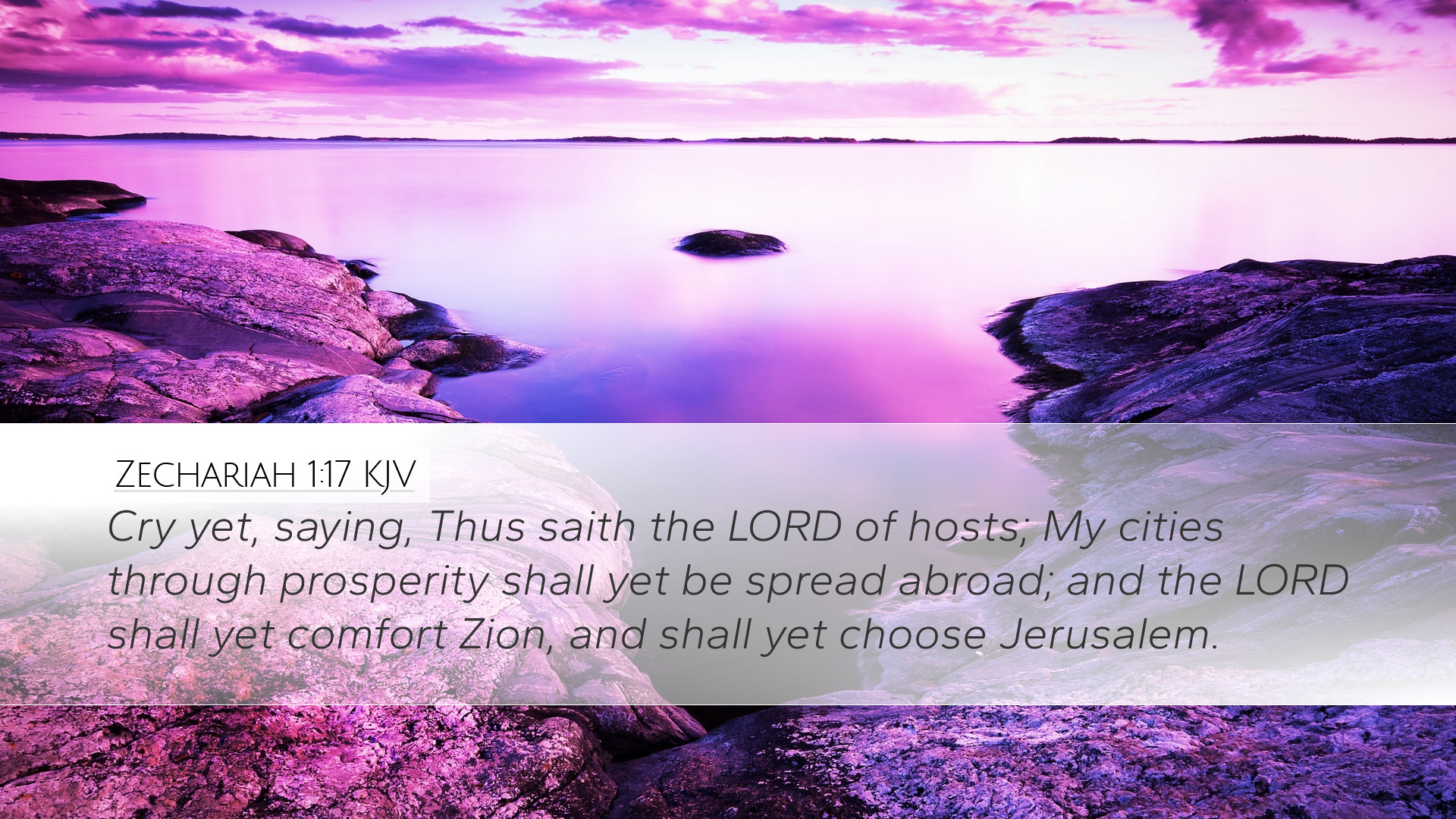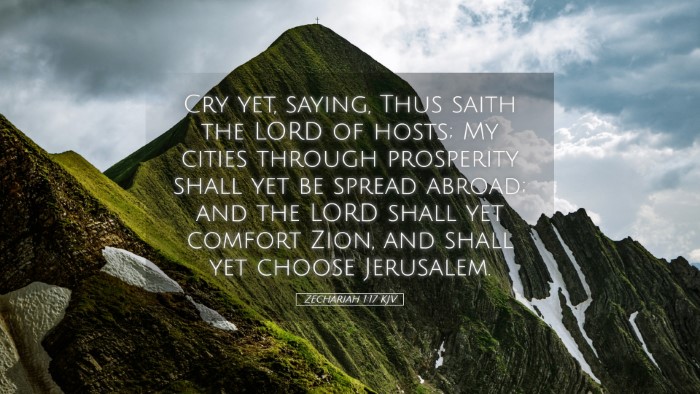Commentary on Zechariah 1:17
Zechariah 1:17 states: “Cry yet, saying, Thus saith the Lord of hosts; My cities through prosperity shall yet be spread abroad; and the Lord shall yet comfort Zion, and shall yet choose Jerusalem.” This verse is a powerful reminder of God’s promise of restoration and comfort for His people, particularly the cities and the holy city of Jerusalem. Below, we explore insights from several public domain commentaries, providing valuable theological reflections for pastors, students, theologians, and Bible scholars.
Contextual Overview
The Book of Zechariah, part of the Minor Prophets, is a post-exilic prophetic book addressing the people of Israel after their return from Babylonian captivity. It serves to encourage the returned exiles and to reaffirm the hope of God's presence and restoration. Zechariah conveys visions, messages, and oracles that illustrate God’s covenant faithfulness and sovereignty.
Key Themes and Insights
-
Divine Assurance of Prosperity:
Matthew Henry notes that God commands a cry heralding His promise of prosperity: “My cities through prosperity shall yet be spread abroad.” This underscores God's ability to bless and expand His people through divine favor, moving from a state of desolation to one of flourishing abundance.
-
God's Comfort and Choice:
Albert Barnes elucidates that God’s promise to comfort Zion is not merely a temporal consolation, but a profound divine support that aligns with His eternal plan. The phrase “shall yet choose Jerusalem” emphasizes the enduring choice of God over His people, signifying His everlasting covenant and affection towards His chosen city.
-
The Role of the Community:
Adam Clarke reflects on the communal aspect of restoration: the cities represent the collective identity of the Israelites. Here, the prosperity is not only for individuals but for the entire community. The collective dimensions of God’s promise highlight the importance of unity and shared hope among the people.
Theological Reflections
The promises contained within Zechariah 1:17 provide rich theological insights:
-
Hope in Restoration:
The prophetic declaration invites believers to engage with the future hope of restoration. It encourages an understanding of God’s redemptive plans amid challenges, reminding us that God’s purposes transcend temporal difficulties.
-
God's Sovereignty:
This passage emphasizes the sovereignty of God over history and nations. He orchestrates the prosperity of His cities and comforts His people, an affirmation that resonates with the divine authority seen throughout the Scriptures.
-
The Continuity of God’s Covenant:
The mention of Zion and Jerusalem evokes the deep, historical significance of God's covenant with His people. This continuity is foundational for understanding God’s dealings with humanity and His enduring relationship with Israel.
Practical Applications
For pastors and Bible scholars, Zechariah 1:17 contains several practical implications:
-
Encouraging Community Growth:
Church leaders can take inspiration from the communal aspect of prosperity. Just as God promises to spread prosperity among the cities, pastors should encourage strategies that foster communal growth and mutual support within their congregations.
-
Speaking Hope:
The command to “Cry yet, saying” serves as a reminder to declare hope and promise in our preaching and teaching. In a world filled with despair, the church is called to proclaim God’s assurances and comfort to a hurting world.
-
Reminding of God’s Faithfulness:
Regularly reflect on God’s past faithfulness as a means to build trust among congregants. Demonstrating how God has worked in the past inspires confidence that He will fulfill His promises in the present and future.
Conclusion
Zechariah 1:17 serves as a significant verse articulating God’s promise of restoration, abundance, and divine choice for His people. Through the insights of Matthew Henry, Albert Barnes, and Adam Clarke, we see the multifaceted nature of this prophetic declaration. It resonates with hope, divine sovereignty, and the importance of a communal faith. For today’s believers, this passage encourages a faith that anticipates God's active involvement in their lives and communities.


